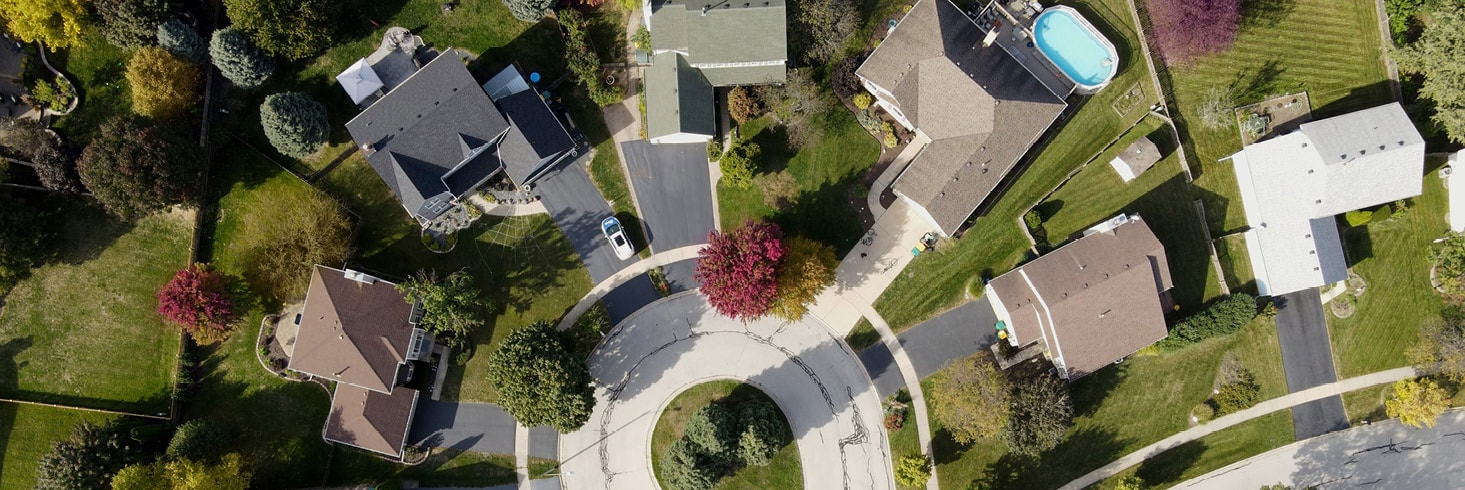
Why Your Property Taxes Go Up After Buying A Home
What Are Property Taxes?
When you own a property, you are required to pay property taxes based on the assessed value of your land and buildings. Unlike federal tax brackets which are dependent on a particular filing status, property taxes are different for each individual property. Real estate listings often show the prior year’s property tax figures to provide potential buyers with an idea of what their rates might be, but the current taxes are assessed based on the value of the property after buyers take ownership. While these property taxes are typically regulated and capped by the state, for the year following the sale of a property, the taxable value resets to the uncapped state equalized value (SEV), which is why property taxes may go up after buying a home.
To determine the amount you will pay in Michigan property taxes after purchasing a property, an assessor will work with a local taxing authority to consider the physical aspects of both the home and land and the price of comparable properties nearby. These taxes — which are levied by state and local municipalities — can be used to fund school districts along with other public and community amenities. Homeowners are typically billed twice each year for their Michigan property taxes — once in the summer and once in the winter — although those bills can be covered through their monthly mortgage payments with an escrow account.
Why Did My Mortgage Payment Go Up?
While your mortgage principal won’t increase, monthly payments can be subject to fluctuation because of other costs. Monthly payments are the sum of the mortgage principal and interest costs associated with your mortgage, along with escrow accounts. Escrow payments may cover both homeowners insurance and property taxes, so if the price of your property taxes or insurance rises, your overall monthly payment may increase as a result.
Why Did My Property Taxes Change?
Property taxes are based on the value of your home, which is constantly changing. Renovations, the condition of your home, and the value of surrounding properties are some of the most common factors that can influence the value of your home, causing your property taxes to change.
The location of your home can also cause your property taxes to change. Since property taxes can be used to support local school districts, infrastructure, and other public services, tax payments are also determined based on how much funding the community needs.
Permanently and completely disabled U.S. veterans, elderly and disabled homeowners, and people living on properties that contain certain trees, solar, wind, or water energy conversion devices, or erosion control features can also explore exemptions to lower their Michigan property taxes. If homeowners disagree with the assessed value of their home, they can potentially seek reassessment.
How Much Can My Property Taxes Increase Each Year?
Michigan property taxes are regulated by a law that limits how much taxes can increase each year. The taxable value is capped at either the Consumer Price Index rate of inflation or 5% — whichever is lower. For the entire first year following the sale of a property, the value that can be taxed returns to the SEV, which doesn’t have a cap, so homeowners can expect larger higher property tax changes during their first year of ownership.
Homeowners Insurance Costs
While homeowners’ insurance and property taxes are both grouped into escrow accounts and take the value of your home into consideration to determine rates, the payments cover very different things. Homeowners insurance covers your property, home, and the contents of your home. Insurance agents will work with you to determine how much coverage you want and the deductible you want to be responsible for should you need to file a claim in the event of a fire, natural disaster, theft, or other disaster.
Why Did My Escrow Payments Go Up?
If your property tax increases, your escrow payments will likely rise since escrow accounts cover both homeowners’ insurance and escrow payments. Your mortgage lender or servicer will recalculate your escrow payment each year and if either your property taxes or homeowners insurance cost more than the prior year, your payment will rise to reflect those increases. Your escrow payments could also go up if there was a previous miscalculation to your fees.
What if I Refinance My Home?
Refinancing can open up several benefits including lower monthly payments, lower interest rates, or access to cash from acquired equity— these benefits may be dependent on your home’s value, your eligibility for a loan, and the condition of the current market. Regarding property taxes, refinancing shouldn’t make a difference, unless you use the money from a cash-out refinance to remodel. Remodeling and any new construction project triggers a reassessment of your home’s value, since changes and improvements are being made to your property.
Can My Mortgage Payment Go Down?
Just like mortgage rates can increase, they can also go down. Your property value can be reassessed every year or two depending on your city’s requirements, which can cause your property taxes to go down, driving your mortgage payment down with it. Payments can also be adjusted downward if your homeowner’s insurance premium declines. If you begin your mortgage with private mortgage insurance (PMI) and end up taking PMI off your mortgage, your monthly payment can also go down.
How Can I Properly Calculate My Property Taxes in Michigan?
Michigan property taxes are expressed as mill rates with one mill equal to $1 of tax for every $1,000 of taxable value. Each county in the state has its own tax rate, so depending on where you live, your taxable rate will vary. To calculate your estimated property tax figures, you can input the value of your home and your county using the Michigan Department of Treasury’s online property tax estimator tool or contact a Treadstone Loan Officer for more help.
What Are Some Tips to Make Sure I Get the Best Monthly Payment for My Home?
If you’re buying a home, increasing your credit score and putting down a larger down payment are good ways to start off with a lower monthly mortgage payment. You can also ask your lender about which mortgage options are available to you.
If you already own your home and want to decrease your monthly mortgage payment and you have extra cash on hand, you may be able to make additional payments toward your principal (not the interest). Getting rid of PMI and shopping around for the best deal on homeowners’ insurance are also great ways to lower your monthly bill. If you feel that the value of your home or the price of surrounding homes in your area has gone down since your last assessment, you can also contact a home loan expert to request a reassessment or seek other advice.
Treadstone Funding and its employees are not CPAs or financial advisors. Not financial advice. All information provided is for educational purposes only. Contact a licensed financial advisor and/or tax professional before proceeding.
Property taxes can be confusing, but we can help!

